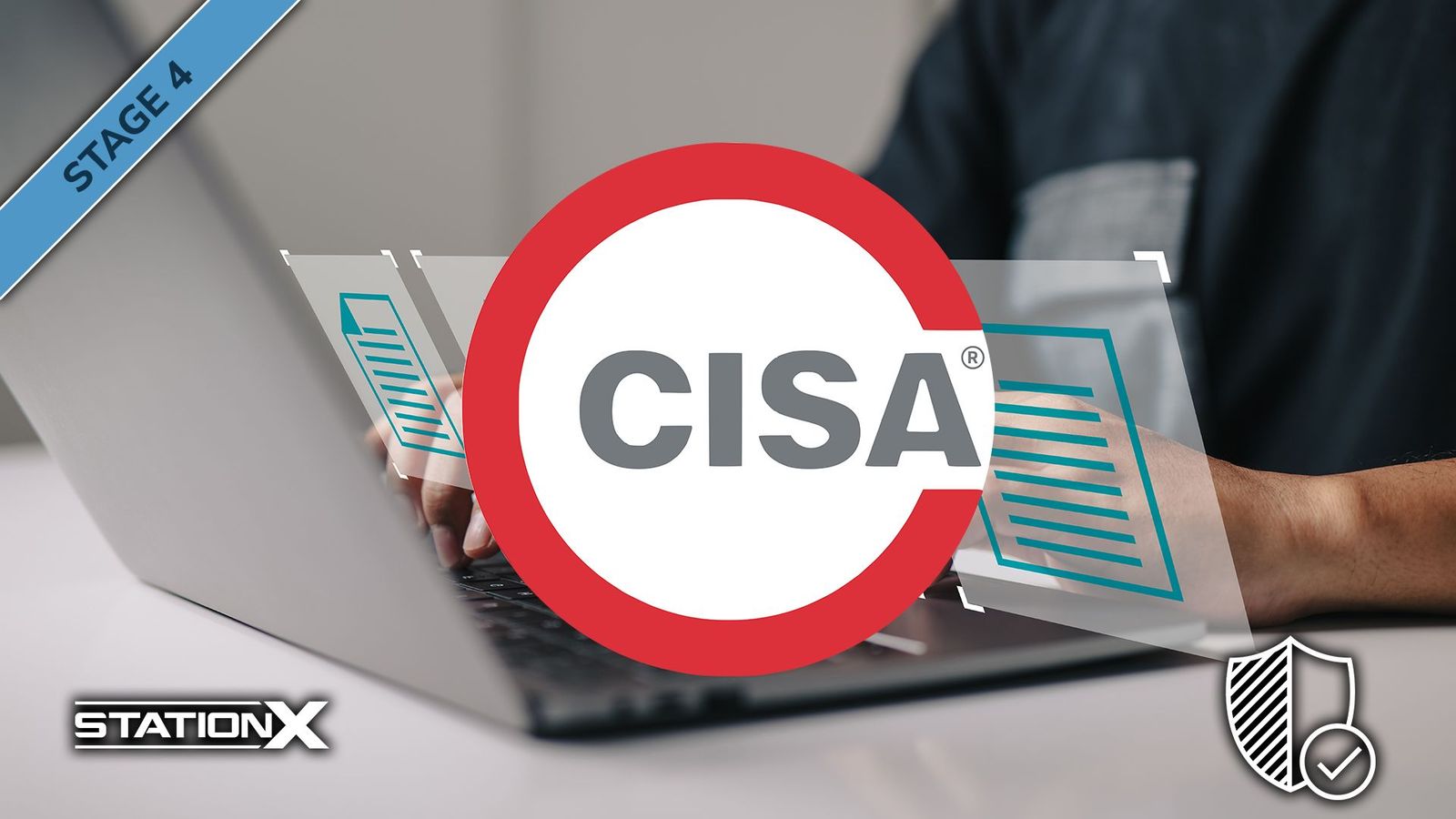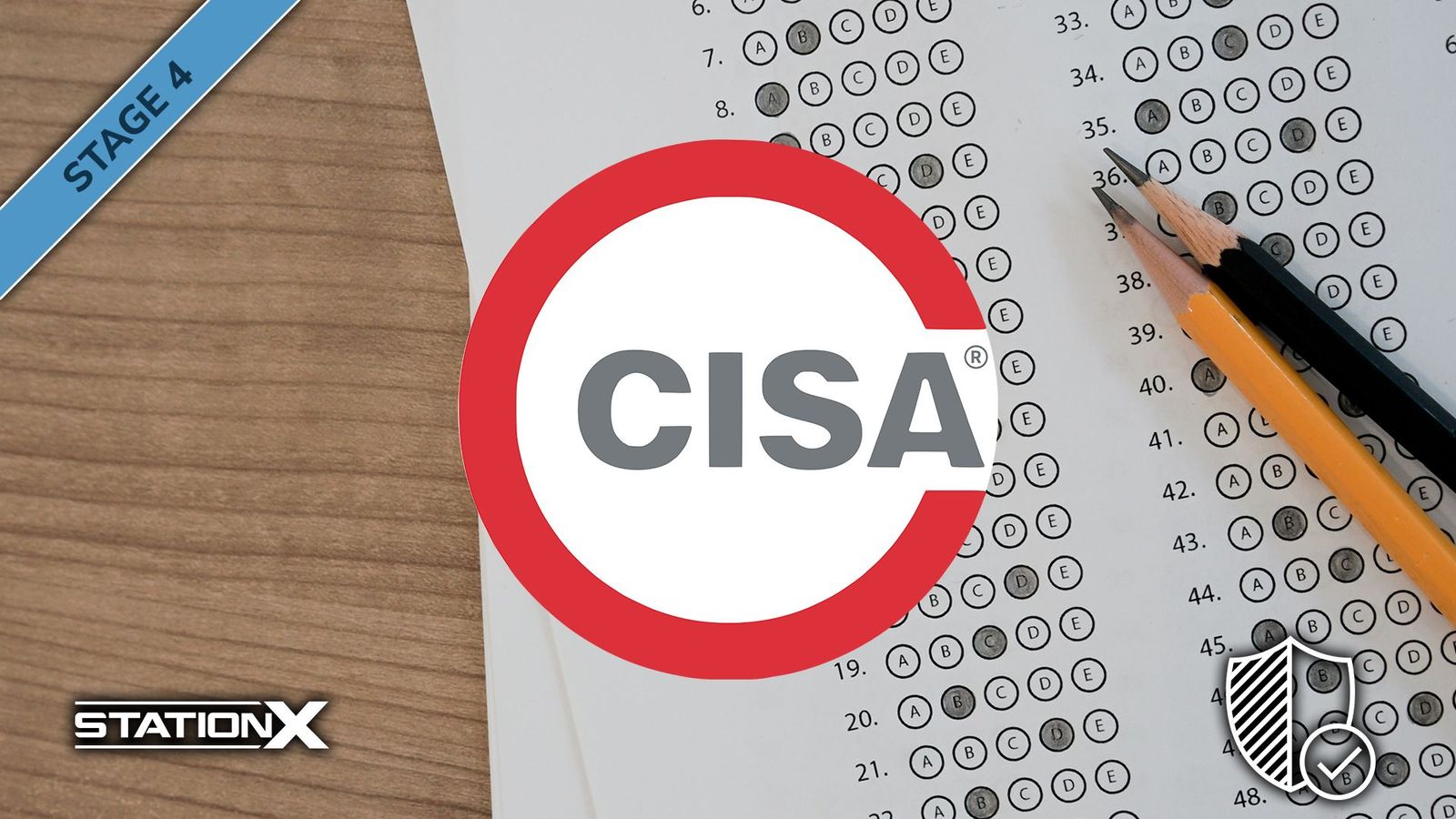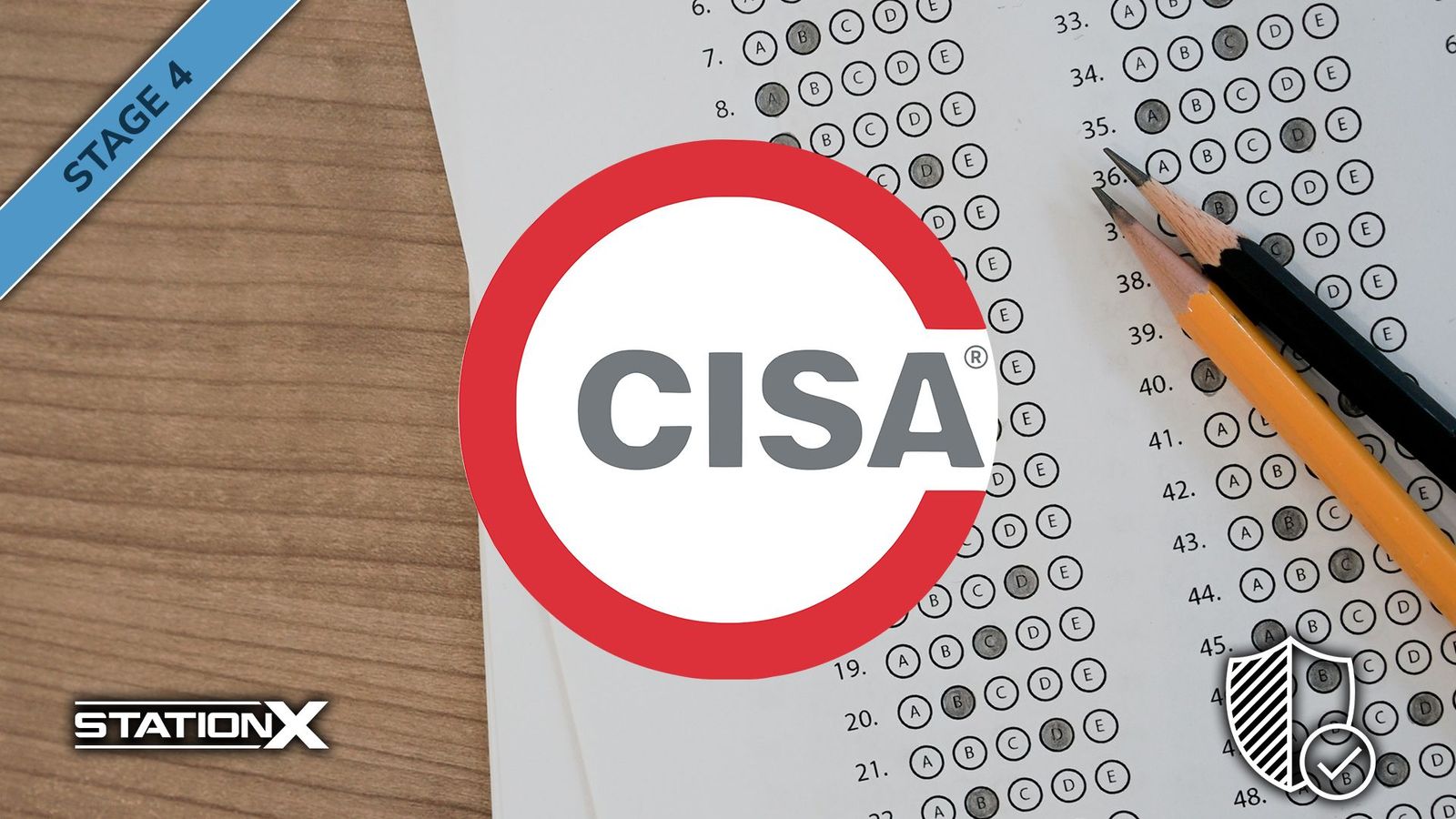A CISA certification might seem more nebulous than others more directly oriented toward technical IT or cyber security know-how. However, it remains in demand and can earn you a great salary.
Because it covers a variety of audit, governance, and compliance topics, CISA can also open the door to various auditing-adjacent roles, including some in finance.
It’s an advanced certification, which shows in the job prospects it presents and the high average CISA salary.
So, if you’re wondering what salary you can expect with a CISA certification, read on. We’ve reviewed salary data for some of the most common job titles for CISA holders and given you our thoughts below.
Ready? Let’s go.
What Is CISA Certification?
Certified Information Systems Auditor (CISA) is an IT auditing certification offered by the Information Systems Audit and Control Association (ISACA).
CISA validates your information system auditing knowledge and tests whether you’re prepared for audit or audit-adjacent jobs, such as IT policy-setting roles.
The CISA exam assesses your knowledge across the following domains:
| Domain | Weighting |
|---|---|
| Information System Auditing Process | 18% |
| Governance and Management of IT | 18% |
| Information System Acquisition, Development, and Implementation | 12% |
| Information Systems Operations and Business Resilience | 26% |
| Protection of Information Assets | 26% |

Want to find out more about what these CISA domains entail? Check out our guide:
The CISA exam costs $760 USD for non-ISACA members or $575 USD for ISACA members. It features 150 multiple-choice questions, which you have four hours to answer. The exam can be taken in person at an exam center or at home when remotely proctored. The passing grade is 450/800.
To become CISA certified, you must also have five years of work experience in information system control, audit, assurance, or security.
To maintain your CISA certification, you must pay an annual maintenance fee of $85 for non-members or $45 for members and earn 20+ Continuing Professional Education (CPE) credits per year and 120 over three years. These can be earned through training and attending conferences.
What Does the CISA Certification Prepare You For?
A CISA certification primarily prepares you for IT auditing roles, but it also prepares you for some auditing-adjacent roles.
For instance, because CISA teaches a risk-based approach to auditing, it can help you prepare for roles such as Risk Analyst, but also control (policy and procedure roles) and governance roles.
Here are some of the most common job titles we found for CISA certified professionals on Indeed:
- IT Auditor
- Cyber Security Manager
- Senior Audit Manager
- Financial Auditor
- Risk Analyst
IT Auditor
An IT Auditor investigates and analyzes a company's use of technology to assess its IT infrastructure. They help ensure that the organization’s rules and regulations and those of governmental and regulatory bodies are followed. They also ensure risk avoidance and that information is managed securely and effectively.
Cyber Security Manager
A Cyber Security Manager oversees the security of an organization’s network, systems, and information flow, ensuring proper security procedures are followed. They also manage other cyber security professionals who manage cyber threats, response, and vulnerability management.
Want to transition to management? Check out our guide:
Senior Audit Manager
An Audit Manager oversees the operations of IT Auditors, Financial Auditors, Risk Auditors, and other auditors in an organization. They’re usually employed by bigger organizations requiring larger audits and multiple auditor staff. They will manage the entire auditing process, ensuring all rules and regulations are followed and auditing targets are met.
Financial Auditor
A Financial Auditor analyzes an organization’s financial statements and related evidence to ensure that all statements comply with internal and external rules and regulations. In other words, they ensure the credibility of a company’s financial records. Information security auditors often find it easy to transition to financial auditing because the two roles overlap, as is seen in their focus on following strict procedures, adhering to legal regulations, and employing investigative methodologies.
Risk Analyst
A risk analyst assesses the likely consequences of an organization’s various activities, whether financial or technological. They analyze the likelihood of adverse events occurring and the extent of the consequences should they occur, then report this information to the organization and advise on how to reduce the risk.
CISA Certification Salary and Job Opportunities
On average, a CISA-certified auditor can expect a high salary. Organizations aren’t likely to cheap out on their auditing professionals because if a company wants an audit, they’ll like it done correctly. A good audit should prevent potential legal troubles and ensure an accurate assessment to help improve the organization’s processes and implementations.
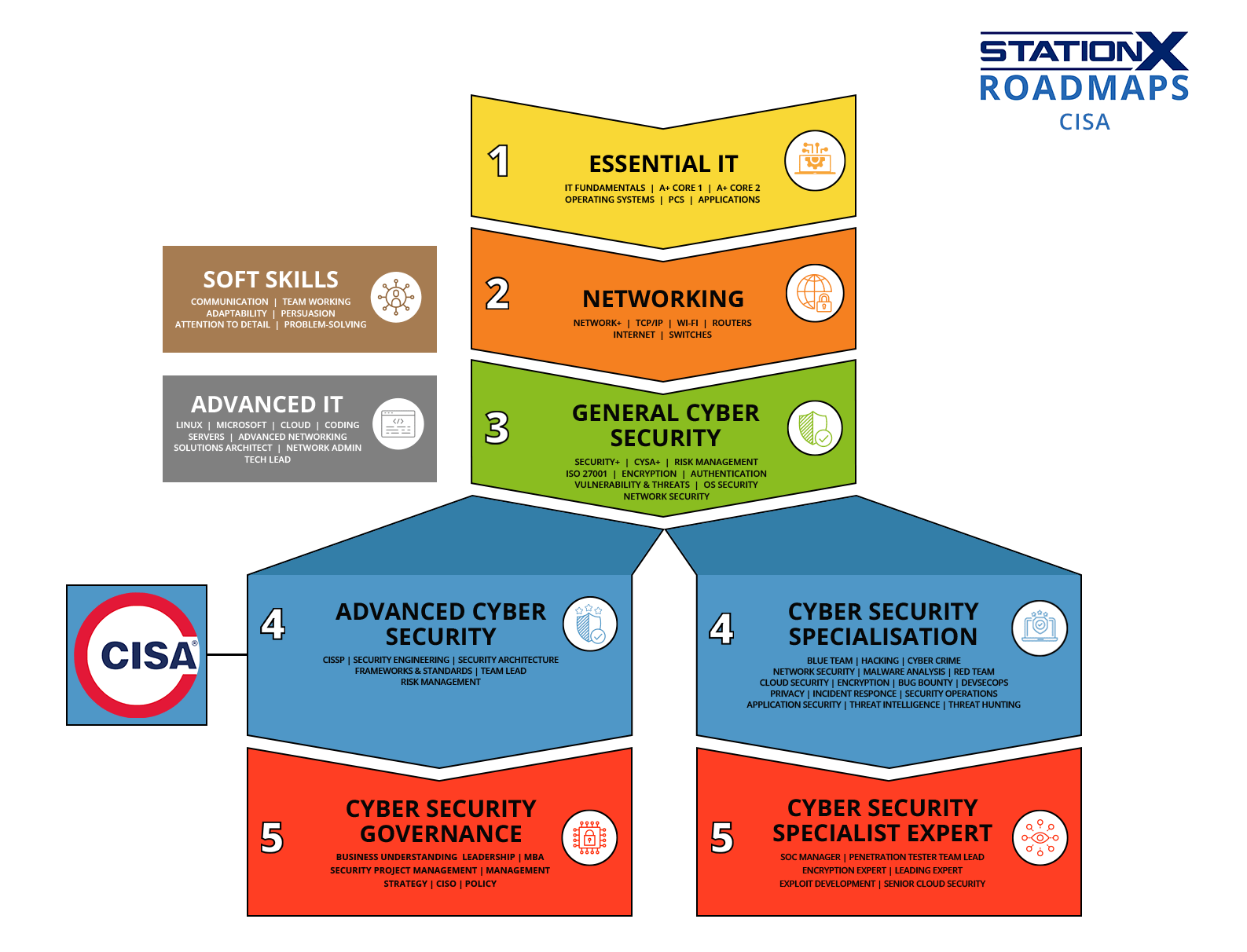
Becoming CISA-certified can also open the doors to other high-paying roles because the certification validates a user’s competency in several areas, including governance, compliance, business systems, risk analysis, control assessment, auditing procedures, and business resilience.
There are currently over 3,000 US-based jobs listed on Indeed that mention CISA.
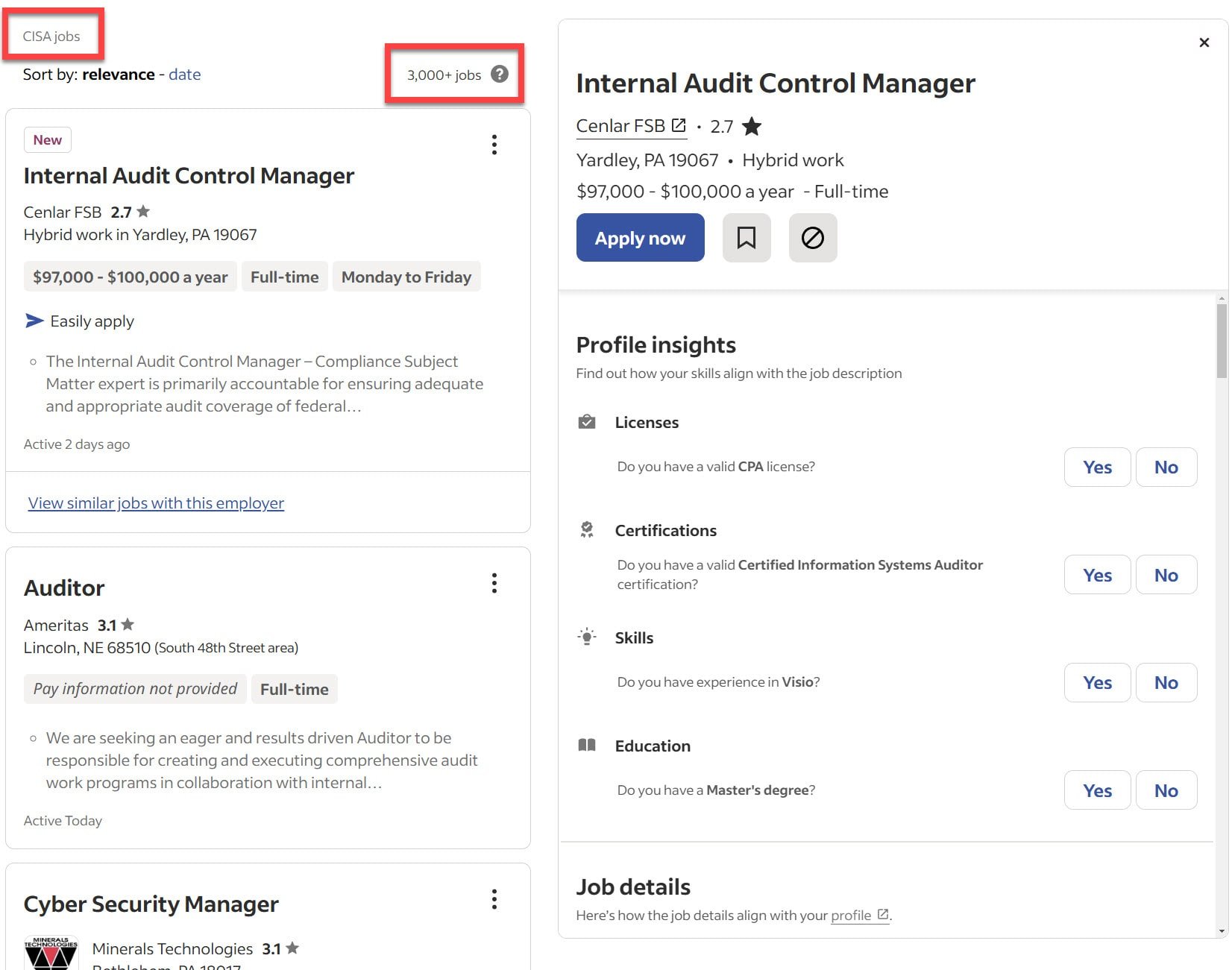
GlassDoor lists 2,732 US-based CISA jobs, and LinkedIn lists 7,703.
According to ZipRecruiter, a CISA-certified professional can expect an average salary of $109,713 USD.

Salaries start as low as $62,000 USD and can reach up to $150,000 USD depending on your experience, other certifications you hold, and what job role you go for. Many jobs at the higher end of this pay scale are likely managerial roles such as Cyber Security Manager or Chief Information Officer (CIO).
Are you curious about how auditing jobs stack up against cyber security salaries? Check out our guide:
IT Auditor
IT Auditor is the most common and straightforward role to aim for after obtaining a CISA certification. IT Auditors are very in demand, and there’s ample room for career progression within the role.
Indeed shows over 1,000 US-based IT Auditor jobs for CISA professionals, and LinkedIn shows 408.
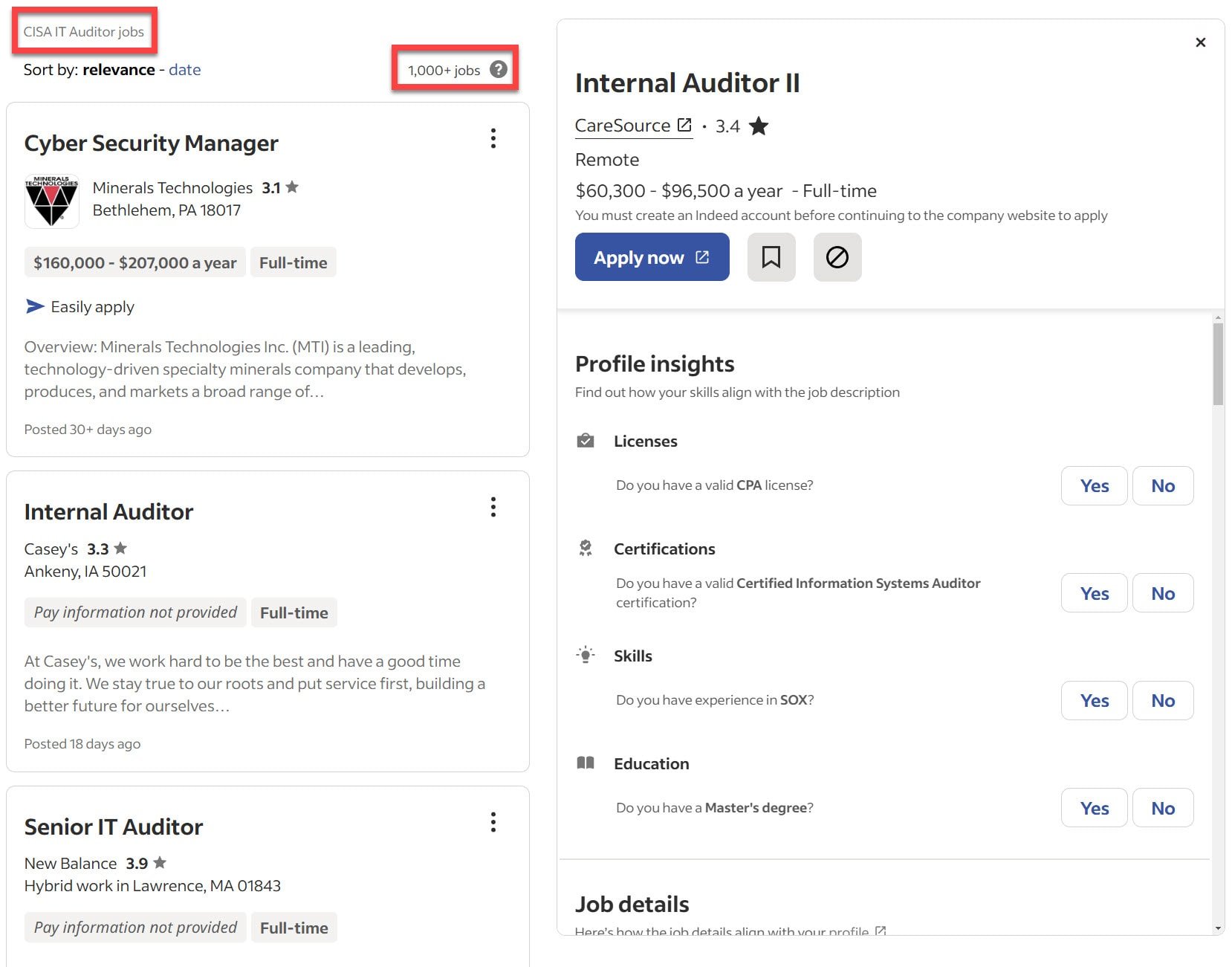
According to ZipRecruiter, the average salary for an IT Auditor role is $92,797 USD and can reach up to $151,000 USD.
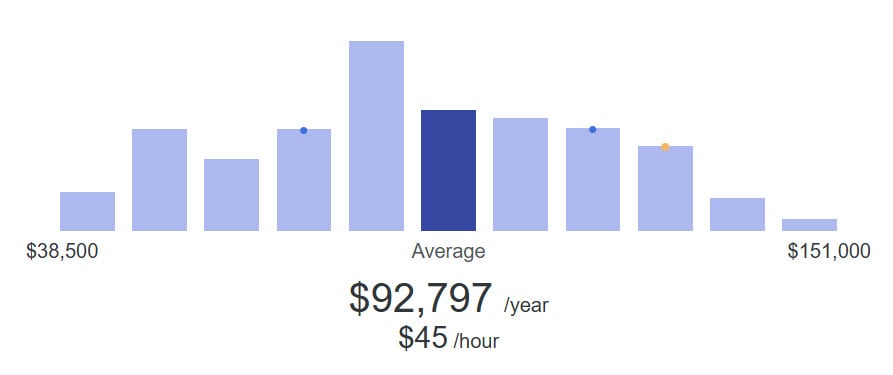
ZipRecruiter shows salaries starting at about $38,500 USD, but this is probably a mistake caused by a misclassified contractor pay. An entry-level salary for an auditor role should net you a salary higher than $55,000 USD in most locations.
Cyber Security Manager
A CISA certification can be a step towards a managerial role, and organizations recognize this. In fact, many of them advertise IT Manager and Cyber Security Manager roles with the certification as a requirement. These roles are some of the highest paying for CISA professionals.
Indeed shows over 900 US-based Cyber Security Manager jobs for CISA holders, and LinkedIn shows 1,055.
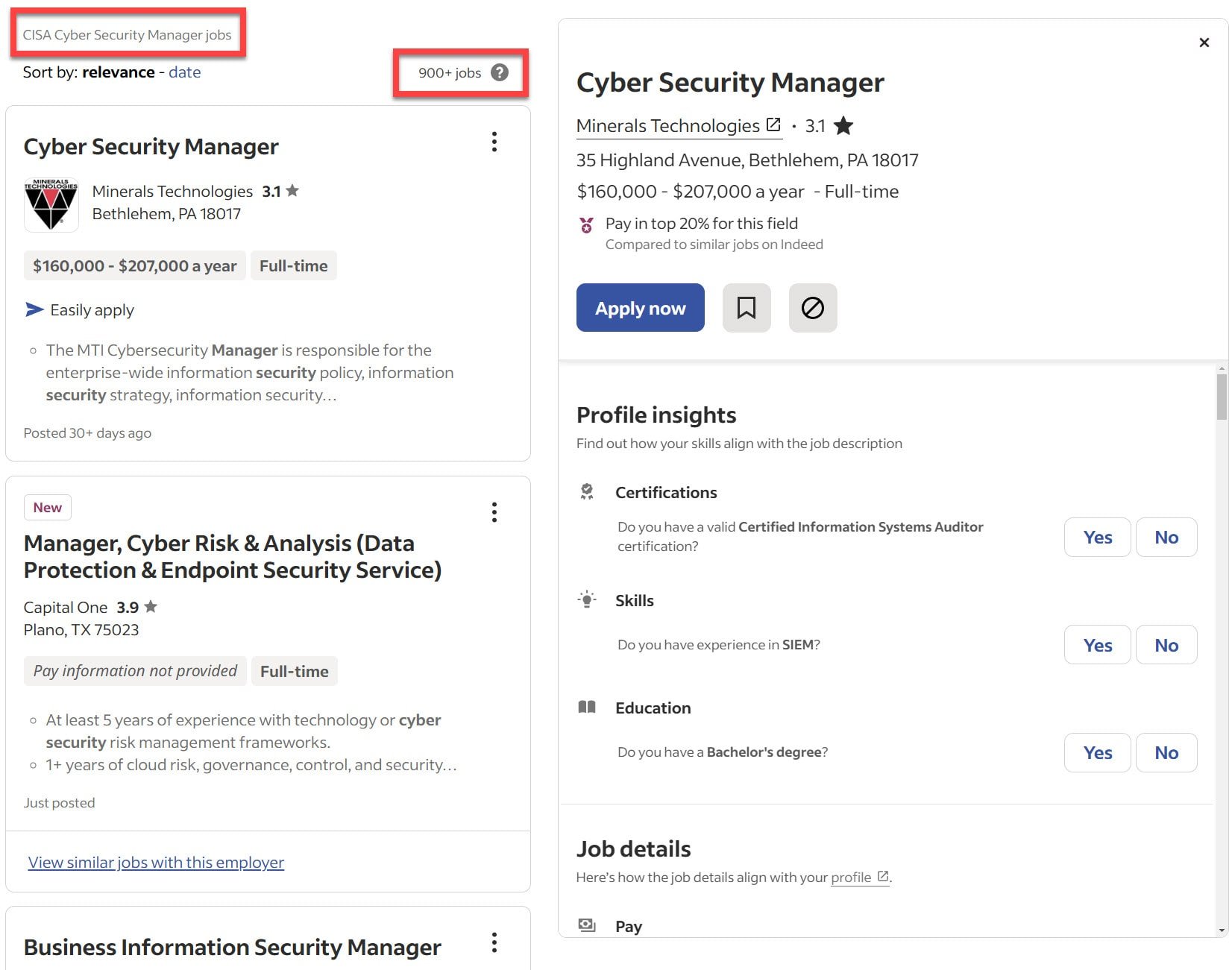
According to ZipRecruiter, the average salary for a Cyber Security Manager role is $132,962 USD and can reach up to $186,000 USD. Salaries start at about $57,000 USD, but most jobs for this role pay well above this.
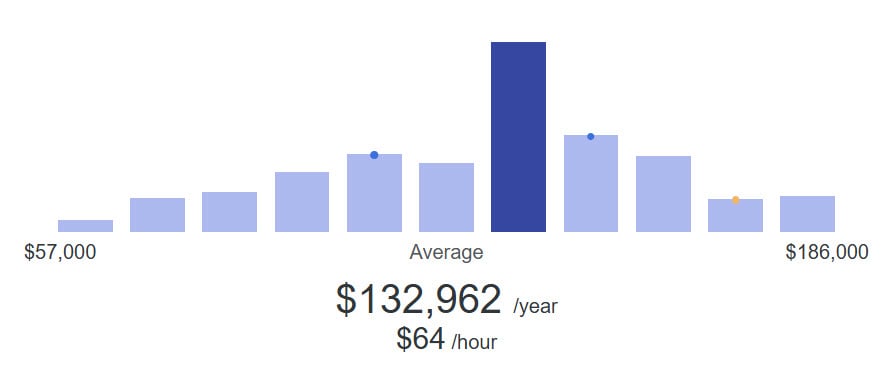
Senior Audit Manager
Senior Audit Manager roles are usually offered to those who’ve been an IT Auditor for some time and are ready to take the next step and move into a management role.
Indeed shows over 1,000 US-based Senior Audit Manager jobs for CISA holders, and LinkedIn shows 160.
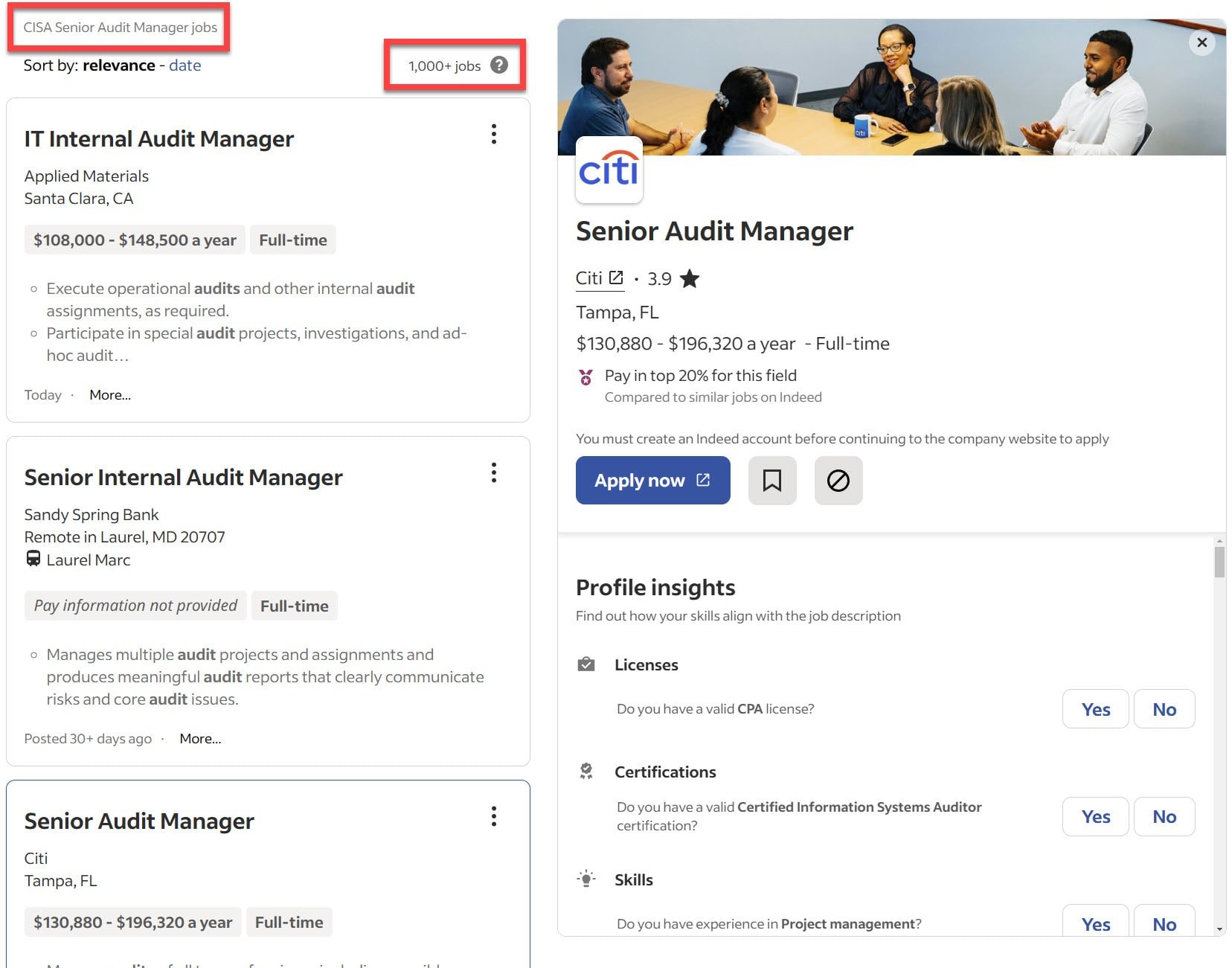
According to ZipRecruiter, the average salary for a Senior Audit Manager role is $118,404 USD and can reach up to $191,000 USD.
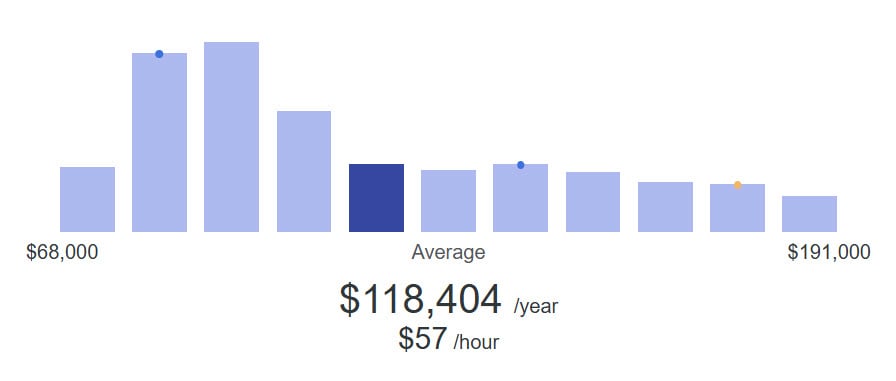
ZipRecruiter shows salaries for this role starting at about $68,000 USD, but we can assume some of these are misclassifications of non-senior Audit Manager roles. Overall, pay distribution is pretty even, with plenty of jobs across the entire salary range, probably differing depending on your experience.
Financial Auditor
While CISA doesn’t focus on it, much of the knowledge the CISA exam tests for is transferable to financial auditing. Many Financial Auditor jobs, however, aren’t listed under that title but under a generic Auditor, Internal Auditor, or Senior Internal Auditor title.
For instance, one job that we found listed on Indeed is for a Senior Internal Auditor. The job description states that one of the job responsibilities will be to audit “financial systems, controls, and business processes to identify areas for improvement and risk mitigation.”
Indeed shows over 1,000 US-based Financial Auditor jobs for CISA professionals, and LinkedIn shows 1,189.
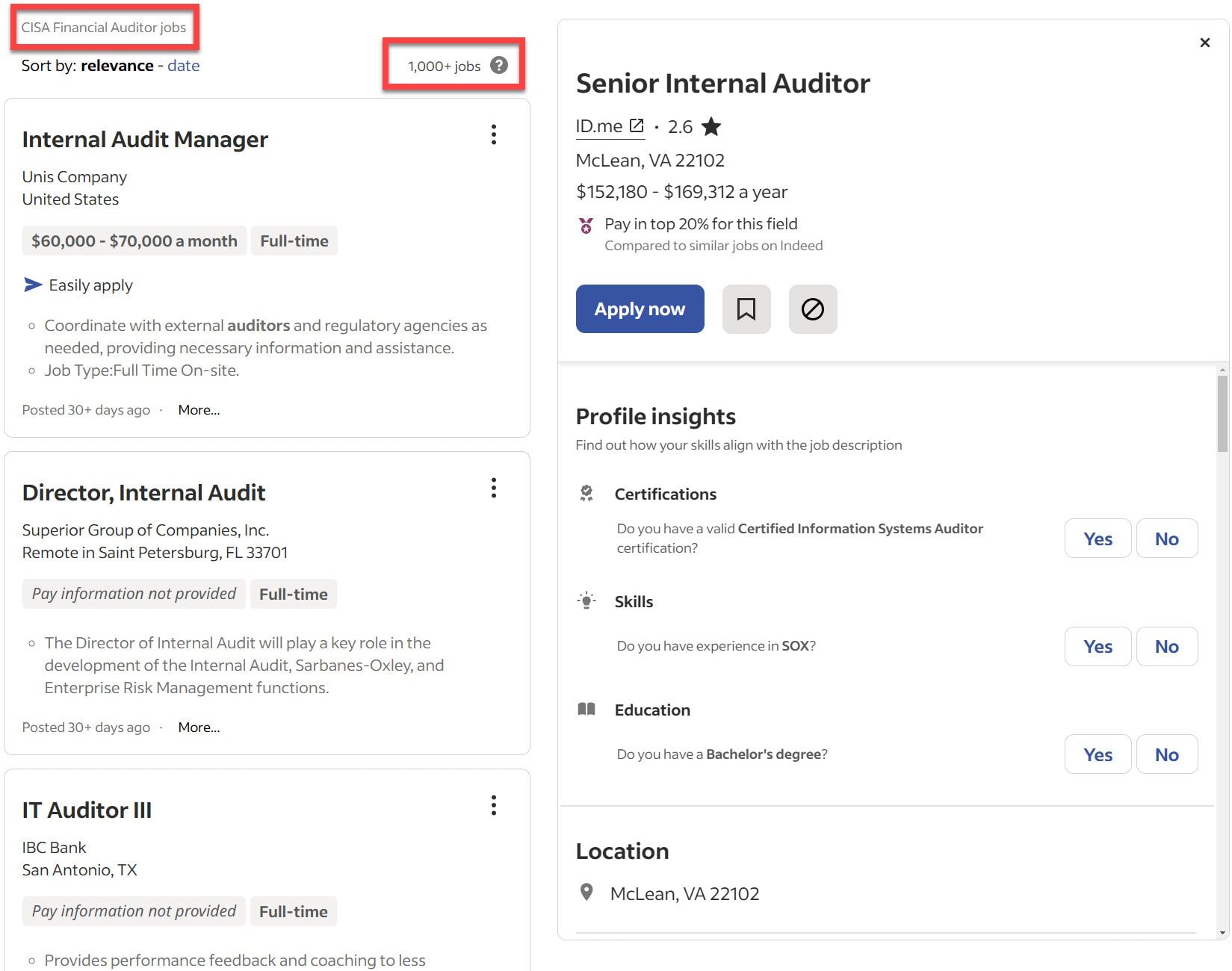
According to ZipRecruiter, the average salary for a Financial Auditor role is $82,682 USD and can reach up to $124,000 USD. ZipRecruiter shows salaries starting at about $36,500 USD, but there are very few salaries so low (these might be internships) and most financial auditing jobs start at about $60,000 USD.
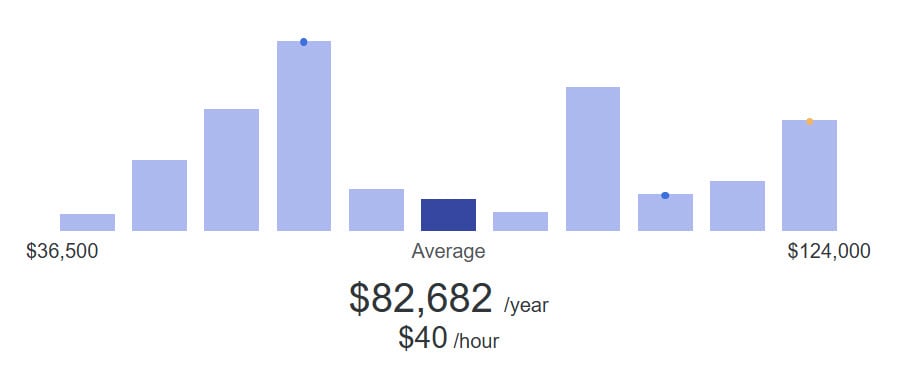
Risk Analyst
CISA places risk analysis at the heart of much auditing methodology, so it’s no surprise that becoming CISA certified can lead to a job as a Risk Analyst.
Indeed shows over 500 US-based Risk Analyst jobs for CISA professionals, and LinkedIn shows 376.
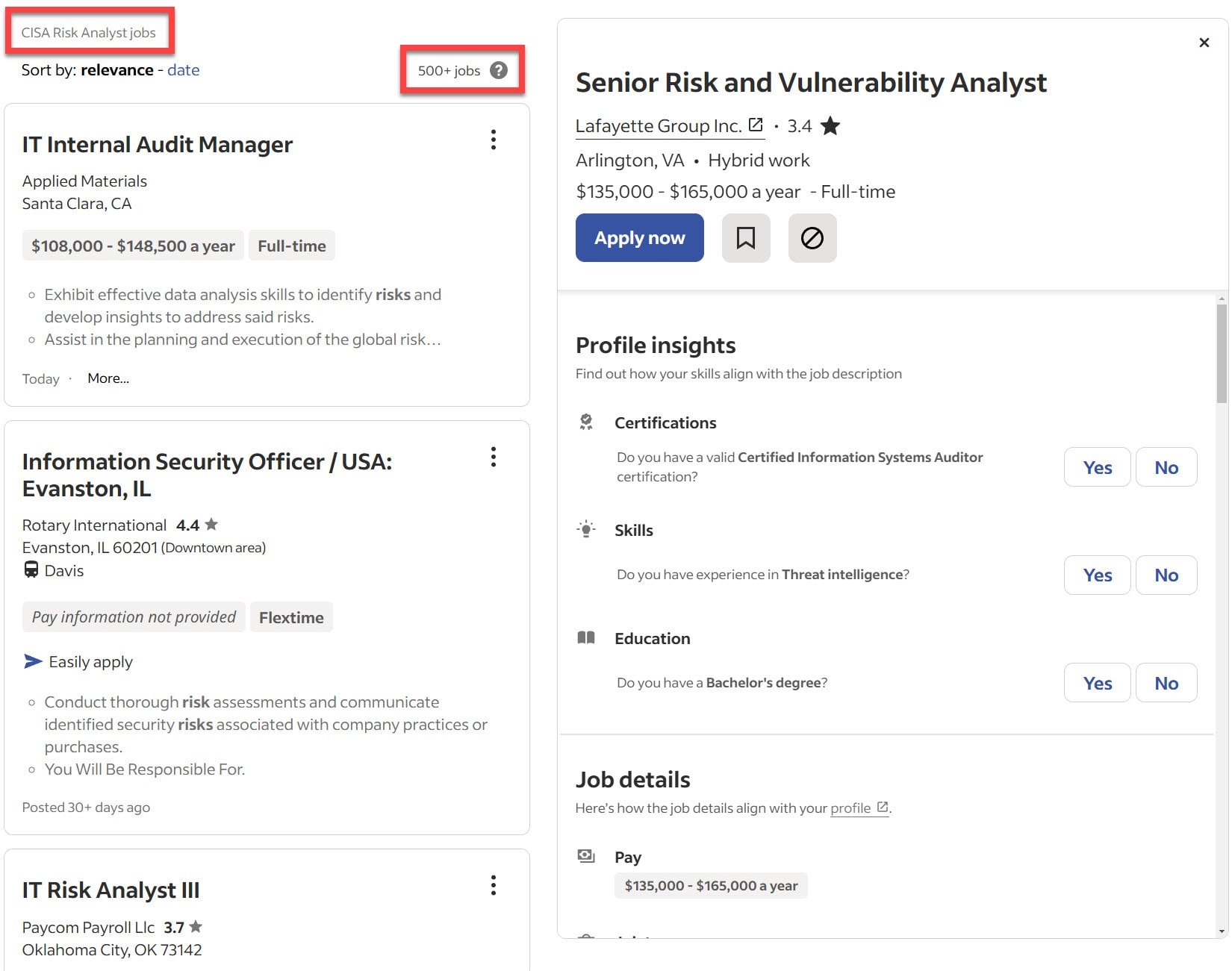
According to ZipRecruiter, the average salary for a Risk Analyst role is $84,210 USD and can reach up to $137,000 USD. Salaries are shown as start at about $32,000 USD, but these are likely to be internship roles. As with Financial Auditor jobs, most entry-level Risk Analyst jobs pay about $60,000 USD.
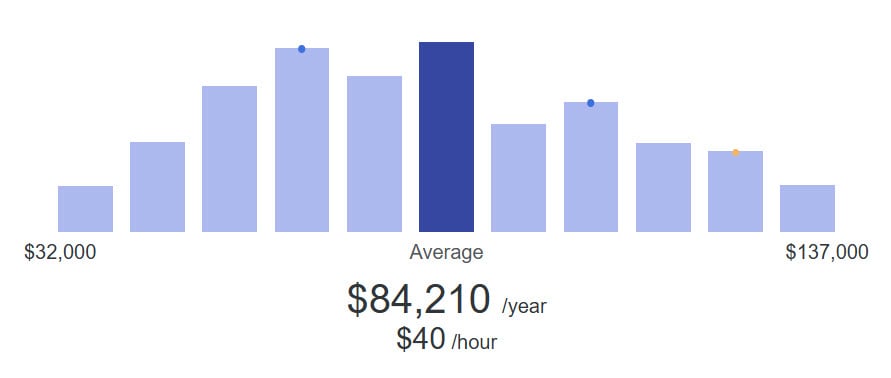
CISA Average Salary Globally
Based on our research, here are what we expect to be realistic salaries for CISA holders in different countries:
| Country | CISA Annual Salary |
|---|---|
| United States | $100k - $120k |
| India | ₹500k - ₹3m |
| United Kingdom | £62k - £67k |
| Canada | CA $70k-$105k |
| Australia | AU $110k - $135k |
| Germany | €50k - €70k |
| France | €42k - €90k |
| Netherlands | €70k - €85k |
| Japan | ¥5m - ¥8.5m |
| Hong Kong | HK $200k - $750k |
The average global salary ranges for CISA holders can be broad, mostly because of the diverse kinds of jobs you can get with a CISA certification. Hong Kong CISA salaries, for instance, can vary greatly between roles like Internal Auditor or Internal Audit Director.
CISA Salary Compared to Competing Certifications
CISA might be the most popular ISACA certification alongside one or two others. Still, it isn’t the only advanced cyber security certification, and there are a few more you might consider if you’re looking at moving into an auditing, auditing-adjacent, or IT governance role.
First, there’s the Certified Information Systems Security Professional (CISSP) certification offered by ISC2. This popular cyber security certification validates both technical and managerial know-how. It features a tough exam that dynamically adjusts its questions to increase difficulty if you’re finding it too easy.
There’s also the Certified Information Security Manager certification (CISM) certification offered by ISACA. This certification focuses more on governance than technical know-how, which includes doing much of what an auditor does, such as assessing risk and security program effectiveness.
Here’s the number of jobs listed for each of these certifications on three major job sites.
| CISA | CISSP | CISM | |
|---|---|---|---|
| Indeed | 3,000+ Postings | 7,000+ Postings | 2,000+ Postings |
| GlassDoor | 2,716 Postings | 6,377 Postings | 2,078 Postings |
| 7,703 Postings | 37,108 Postings | 4,833 Postings |
Are you curious to know which certification is best? Read our comparisons:
Career Progression
After getting your CISA certification, you might start as a Junior IT Auditor on an auditing team or as a Junior Risk Analyst. Your first goal might be progressing within these roles to more senior ones, such as Senior Auditor or Senior Risk Analyst.
In fact, there can be a lot of progression within these roles.
For instance, based on our research into real-world CISA salaries, moving from a Junior IT Auditor to a Senior one might increase your salary from $57,000 to $85,000.
You might instead move in the direction of management and governance, progressing from an IT Auditor role into an Audit Manager role.
You might even take everything you’ve learned about IT system operations and procedures and transition into a Chief Information Officer (CIO) role, heading up the entire IT department.
A final option would be to become a consultant. Consultants can often charge more for their work than they’d earn as a salaried employee. However, work isn’t guaranteed, and you must be experienced enough to be contracted.
Conclusion
CISA is in high demand for auditing roles and auditing-adjacent ones, such as Risk Analyst and Cyber Security Manager roles. The CISA exam validates a candidate’s knowledge across various areas, including compliance, regulations, and systems operations.
CISA professionals have an abundance of varied jobs open to them, and if they already have experience in an auditing, risk analysis, or cyber security role—as they must to become CISA certified—a CISA certification should open the door to more senior roles.
If you’re looking to get into auditing, compliance, risk, or IT management, CISA is a great certification to pick up.
If you’re considering it, consider joining the StationX Master's Program to help you pass your CISA exam. Joining gives you access to over 30,000 projects, courses, and labs, but perhaps more importantly, it gives you access to community forums and a mentorship program to keep you on track toward CISA exam success.

